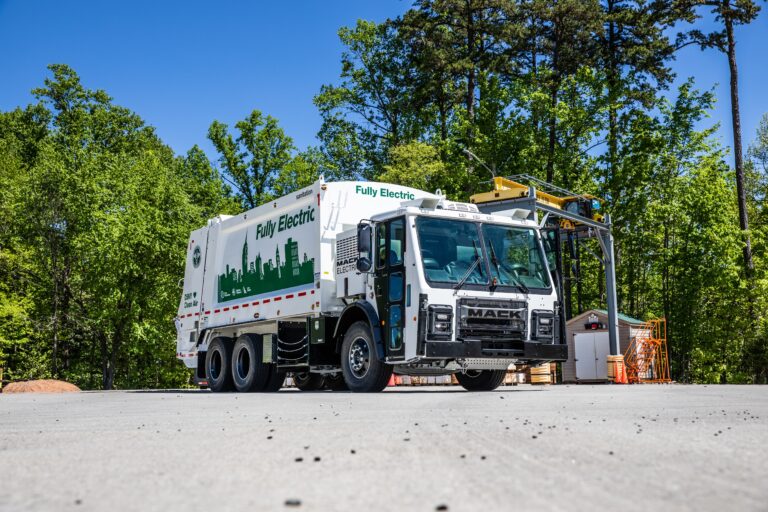Adoption Resource Kit
Home > SPARK: State Plug-In Adoption Resource Kit > Develop EV procurement and operation policies
STEP SEVEN: Develop EV procurement and operation policies
Develop policies and plans to guide vehicle procurement, operation, maintenance, and charging.
The fleet may need to modify its existing procurement or vehicle replacement plans, schedules, and policies. New procurement plans and budgets should take into account vehicles’ total cost of ownership (TCO), including fueling, rather than just upfront purchase costs, as EVs have higher upfront costs but lower TCOs. The fleet may choose to enact an EV-first purchasing policy, which requires any replacement vehicle to be an EV if a suitable model is available for the given application and the EV’s TCO comes within a certain margin of a comparable conventional vehicle’s TCO. The state may be able to reduce EV purchase costs by procuring EVs jointly with cities through a large group-buy.
The fleet will need to develop operation and maintenance plans and policies. Fleet managers may need to identify local dealerships or fleet maintenance contractors that can perform any necessary battery upgrades or technology updates (which should be minimal) as state fleet technicians receive training on EV maintenance. Fleet managers must contract with service providers for regular maintenance of charging stations. State-owned vehicles that employees drive to their homes require a home charging policy, including how the employee is reimbursed for charging at home. Similar to gas cards or fuel cards, a fleet needs charging cards or logins on apps for charging at publicly accessible charging stations, or it must develop a process for reimbursing these expenses.


ALL RELATED POLICIES
Page 1 of 2
Sourcewell, Cooperative Purchasing, Vendors & Contracts, Fleet & Related.
Washington Department of Energy’s Contract Automobile Request System (CARS) for state record keeping.
Oklahoma’s Office of Management and Enterprise Services Electric Vehicle Supply Equipment Registry.
Oklahoma Office of Management & Enterprise Services, Real Estate & Leasing Services, Oklahoma’s Process: Procuring Electric Vehicle Charging Station Through OMES REALS EV Charging Station Registry, (Nov. 2019).
State of Massachusetts User guide for Statewide Contract for the Purchase of Electric and Hybird Vehicles.
California State Administrative Manual, 4121.5, including CA’s ZEV Purchase Orders & Abbreviated ZEV Acquisition Process.
Lousianna Division of Administration: Contract 4400017202 regarding state vehicle contracts.
Vermont Agency of Administration, Buildings and General Services, providing list of current general state contracts in VT.
GSA Fleet, GSA’s Electric Vehicle Supply Equipment (EVSE) Blanket Purchase Agreement (BPA) for electric vehicle supply equipment (EVSE) to include data services, (Apr. 2021).
Drive Green California: Alternative Fuel Vehicles Available Through State of California Contracts.
California Statewide Contract 1-19-23-17C regarding Zero-Emission Transit Buses.
California Statewide Contract 1-19-23-17B, Zero-Emission Transit Buses.
Georgia Statewide Contract 99999-001-SPD0000138-0007 Public Mass Transit and Transportation Related Vehicles and Accessories and Supplemental Mass Transit and Transportation Related Vehicles and Accessories, (Proterra), Contract Amendment No. 1.
Arizona 2021 State Vehicle Contract, listing all active contracts with state vendors and registered vehicle models.
State of Connecticut Contract Portal: Section 13PSX0316 regarding Electric Vehicle Charging Equipment.
State of Iowa, DOT, and Regents – 2021/22 Model Year Vehicle Contract Catalog recording current state vehicle models and contracts.
NREL’s EV Champion Training Series webinars; this course focuses on advanced considerations for EV site assessments, optimally operating a fleet of EVs, and managing workplace charging
Fleets for the Future, Electric Vehicle Procurement Best Practices Guide (2018)
Provides fleet or facility managers the option to change the fee assumptions for workplace charging to match their specific situations
Texas Commission on Environmental Quality, program provides grants to purchase or lease new vehicles that operate primarily on compressed natural gas, liquified natural gas, liquified petroleum gas (propane), hydrogen fuel cells, or electricity
EC, Overview of the latest round of FTA Low-No Program funding. The presentation includes featured guests from FTA and several vehicle and equipment vendors. (March 2021)
U.S. Department of Treasury Fact Sheet on Coronavirus State and Local Fiscal Recovery Funds
Revised Hawaii Statutes of Vehicle fleet performance contracts for vehicle fleet energy efficiency programs
Oregon Laws, Chapter 90, 2018 (HB 4022) relating to electricity for motor vehicles
Bill summary of Colorado SB21-260, Sustainability of the Transportation System (2021)
Melissa Colorado, NBC Bay Area, News story on Berkely City leaders push to use leftover American Rescue Plan money to expand the city’s electric car fleet and help low-income families swap natural gas appliances for all-electric ones, (June 29, 2021)
Rick Earle, WPXI-TV, News Story on Pittsburgh, PA plan for Biden’s American Rescue plan money, (June 28, 2021)
Jacob Wentz, WUSF Public Media, News story on St. Petersburg, FL bus project receiving additional federal funding, (June 15, 2021)
Smart Columbus (Ohio) Public Fleet EV Adoption: Six Things to Consider, (Apr. 5, 2021)
